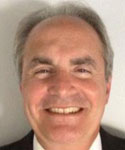How Should You Obtain the 30 Credits?
by Barry R. Palatnik, Ed.D., CPA, Stockton University and Elizabeth Ann Jafolla, Stockton University Accounting Student –
April 16, 2025

The path to becoming a CPA can be a challenging task, but it is obtainable with hard work. To overcome this task, candidates must pass the Uniform CPA Exam, have work experience and 150 college credits. However, there has been a decline in CPAs, and the profession is investigating if there are any barriers for candidates. One of the current discussions in the accounting profession has focused on the extra 30 credits to fulfill the 150-credit requirement.
How We Got Here
The origin of the 150-credit requirement dates to the 1950s when a discussion started on increasing accounting education. At the time, only three states required a college degree Florida, New Jersey and Pennsylvania while the other states required a self-study correspondence course in accounting. During the 1950s, the accounting profession started to require a more formalized education program along with work experience.
In 1979, the Florida State Board of Accountancy led the way to be the first state to adopt a 150-credit-hour requirement. Over the next 20 years, all 50 states adopted the 150-credit requirement with the goals of providing assurance that CPAs will provide competent services to the public and creating well-rounded CPAs for employers and clients.
Fulfilling the Requirement
In a 2024 blog post, author Janet Berry-Johnson provided five common ways CPA candidates can achieve the 30 extra credits:
- Go to grad school. Attending graduate school gives candidates prestige, title and educational growth towards a future job and the CPA Exam. However, this pathway is not always flexible or cost-effective. Besides the traditional MBA, candidates can now choose from a wide range of graduate programs offered at business schools to obtain the 30 extra college credits.
- Take community college classes. Community colleges offer a cost-friendly and flexible solution for candidates looking to pursue an alternative approach to earning additional credits. Community colleges offer tuition at significantly lower rates than traditional universities, helping ease the financial burden on students.
- Enroll in Experience, Learn and Earn (ELE). Building on the idea of flexibility, this option is geared towards people with full-time employment looking to gain the extra credits for licensure. The ELE program was created by the American Institute of CPAs (AICPA) and the National Association of State Boards of Accountancy (NASBA) in collaboration with Tulane University. It allows candidates to take one or two classes per semester online at a reduced rate while working to balance studies and employment.
- Utilize CPA Credits. Unlike structured programs, this option to fulfill the 150-credit requirement comes from a fast-growing organization called CPA Credits, which provides an easy pathway for meeting state eligibility. They deliver evaluation and advising services to help guide candidates to take the proper courses, ensuring people making a career change or unsure which courses are appropriate for their state’s licensure can be guided easily to become a CPA. The courses that are offered at CPA Credits are self-paced and worth three credit hours.
- Take college level examination program (CLEP) exams. These are standardized tests that allow candidates to receive college credit by passing an exam instead of taking a course. These exams are taken at testing centers; 2,900 universities and colleges participate in the program. Learn more at clep.collegeboard.org.
Looking Ahead
While there are multiple strategies for CPA candidates to fulfill the extra 30 credits, the profession continues to investigate other options. The AICPA and NASBA issued a proposal last fall to allow CPA candidates to obtain a Bachelor s degree and an additional year of competency-based experience. Under this pathway, CPA candidates could meet initial licensing requirements by exhibiting their competency in specific professional and technical areas. Professional areas (all required) include the following: ethical behavior; critical thinking; communication; collaboration, teamwork and leadership; self-management and continuous learning; business acumen; and technology mindset. The technical competencies (only one required) include the following: audit and assurance; tax; and business and financial reporting. The comment period for the proposal ended in December and, as of this writing, we are awaiting word on the next steps.
 | Barry R. PalatnikDr. Barry R. Palatnik, Ed.D, CPA, MBA, is associate professor and program chair of accounting at Stockton University. He is a past president of the NJCPA Atlantic/Cape May Chapter and a member of the Pipeline Advocacy Work Group. More content by Barry R. Palatnik: |
Elizabeth A. JafollaElizabeth Ann Jafolla is an accounting student at Stockton University, a student member of the NJCPA. |
This article appeared in the Spring 2025 issue of New Jersey CPA magazine. Read the full issue.